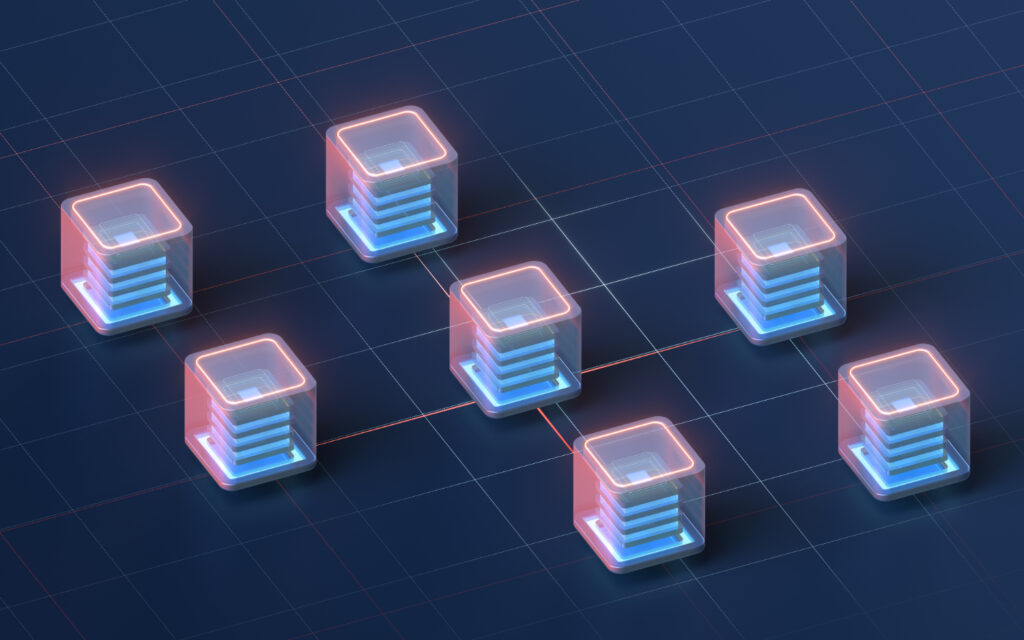Introduction
In today’s digital era, blockchain technology is revolutionizing industries by enabling secure, transparent, and decentralized transactions. Originally developed to support Bitcoin, blockchain has evolved into a powerful technology with applications in finance, supply chain, healthcare, and beyond.
This guide explains what blockchain technology is, how it works, and why it’s shaping the future of digital security and data management.
How Does Blockchain Technology Work?
Blockchain is a distributed ledger technology (DLT) that records transactions across a network of computers. Unlike traditional databases controlled by central authorities, blockchain operates in a decentralized and tamper-proof manner.
Key Features of Blockchain
1. Decentralization: No single authority controls the blockchain, ensuring transparency.
2. Immutability: Transactions are permanent and cannot be altered once recorded.
3. Security: Cryptographic encryption ensures data integrity and prevents fraud.
4. Transparency: All transactions are visible to participants on the network.
Components of Blockchain
- Blocks: Each block contains a set of transactions, a timestamp, and a unique cryptographic hash.
- Nodes: Independent computers (or validators) that maintain and validate the blockchain.
- Consensus Mechanism: Algorithms like Proof of Work (PoW) or Proof of Stake (PoS) ensure all participants agree on transaction validity.

Types of Blockchains
Blockchain networks can be categorized into different types based on their level of access and control.
1. Public Blockchain
- Open to everyone
- No central authority
- Examples: Bitcoin, Ethereum
2. Private Blockchain
- Permission-based network
- Controlled by an organization
- Example: Hyperledger Fabric
3. Consortium Blockchain
- Semi-decentralized
- Multiple organizations manage the network
- Example: R3 Corda
4. Hybrid Blockchain
- Combination of public and private blockchain features
- Greater flexibility and control
- Example: IBM Food Trust
Real-World Applications of Blockchain
Blockchain is transforming industries with its ability to improve security, efficiency, and transparency.
1. Finance & Banking
- Facilitates cross-border payments and remittances
- Enables decentralized finance (DeFi) and peer-to-peer lending
- Example: Ripple (XRP), Stellar (XLM)
2. Supply Chain Management
- Enhances product traceability
- Reduces fraud and counterfeit goods
- Example: IBM Food Trust
3. Healthcare
- Secures patient records and medical history
- Prevents data breaches
- Example: MediBloc, MedicalChain
4. Government & Digital Identity
- Enables tamper-proof voting systems
- Facilitates digital identity management
- Example: Aadhaar Blockchain (India)
5. Real Estate
- Simplifies property transactions
- Reduces fraud and paperwork
- Example: Propy, RealT

Advantages & Challenges of Blockchain
| Advantages | Challenges |
|---|---|
| Decentralized & Transparent | Scalability Issues |
| Secure & Immutable | High Energy Consumption (PoW) |
| Reduces Fraud & Corruption | Regulatory Uncertainty |
| Faster & Cost-Effective Transactions | Complex Integration with Legacy Systems |
Future Trends in Blockchain Technology
Blockchain technology continues to evolve with new advancements and use cases.
1. Web3 & Decentralization: Blockchain will drive the development of Web3 applications and decentralized internet.
2. CBDCs (Central Bank Digital Currencies): Governments are exploring state-backed digital currencies.
3. AI & Blockchain Integration: Artificial intelligence (AI) will enhance blockchain security and automation.
4. Layer 2 Scaling Solutions: Technologies like Optimistic Rollups and ZK-Rollups will improve transaction speed and reduce costs.
5. Tokenization of Assets: Real-world assets like real estate, stocks, and commodities will be tokenized for easier trading.
Final Thoughts
Blockchain technology is reshaping industries by providing secure, transparent, and decentralized solutions. From finance to healthcare, its applications are expanding rapidly, driving digital transformation worldwide.
If you’re looking to integrate blockchain solutions into your business, Blockchain Solutions offers expert blockchain development, consulting, and security solutions.
🔹 Explore our services: Blockchain Development Services
